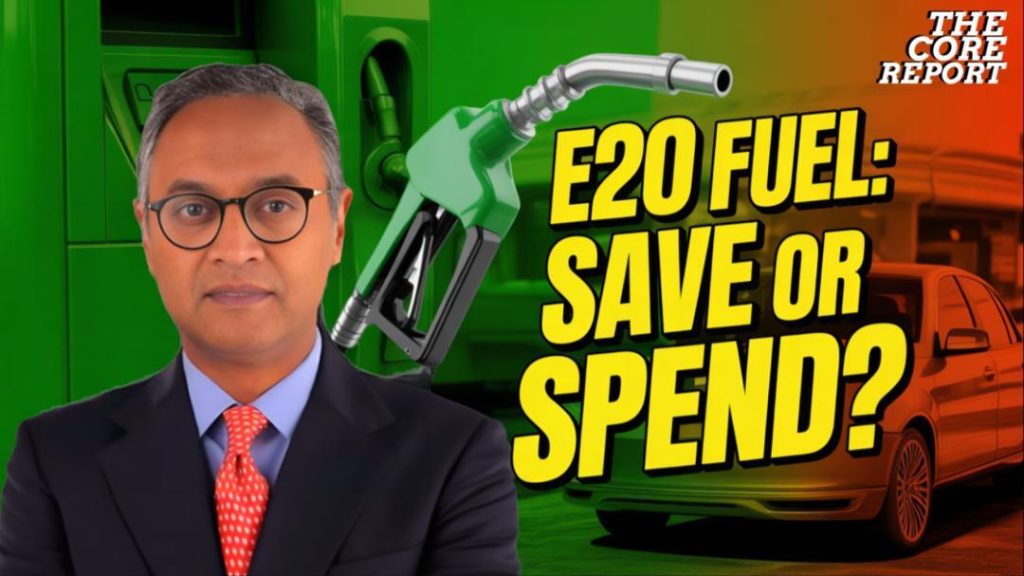
E20 Fuel in India: Benefits, Risks & What Vehicle Owners Must Know
India has been actively pursuing sustainable energy solutions to reduce its carbon footprint and boost energy security. One such initiative is the use of E20 fuel, a blend of 20% ethanol and 80% petrol. The government has been promoting the use of E20 fuel to support farmers, reduce carbon emissions, and increase energy security. But what does this mean for vehicle owners? In this blog post, we’ll explore the benefits, risks, and what vehicle owners must know about E20 fuel in India.
Benefits of E20 Fuel
The use of E20 fuel offers several benefits, including:
- Reduced Carbon Emissions: E20 fuel emits fewer greenhouse gases, reducing the carbon footprint of vehicles and contributing to a cleaner environment.
- Energy Security: India has a surplus of ethanol, which can be used to blend with petrol, reducing reliance on foreign oil imports and improving energy security.
- Support to Farmers: The government’s initiative to promote E20 fuel supports farmers by providing a new market for ethanol, which is produced from sugarcane and other crops.
- Improved Performance: Studies have shown that vehicles running on E20 fuel experience improved acceleration and better engine performance.
- Environmental Benefits: E20 fuel produces fewer pollutants, including particulate matter, nitrogen oxides, and volatile organic compounds, which contribute to air pollution.
Risks Associated with E20 Fuel
While E20 fuel offers several benefits, there are also risks associated with its use, including:
- Compatibility Issues: Older vehicles not designed for E20 fuel may experience engine wear, fuel system corrosion, and mileage loss due to the blended fuel.
- Higher Maintenance Costs: Vehicles running on E20 fuel may require more frequent maintenance, as the blended fuel can be prone to contamination and clogging.
- Limited Refueling Options: In some areas, E20 fuel may not be widely available, making it difficult for vehicle owners to find a refueling station.
- Vehicle Depreciation: The use of E20 fuel may affect the resale value of vehicles, particularly older models that are not E20-compliant.
What Vehicle Owners Must Know
As the government plans to make E20 fuel mandatory for all new vehicles by 2025, vehicle owners must take steps to adapt to the new fuel type. Here are some things they must know:
- Check Vehicle Compatibility: Check the manufacturer’s specifications to ensure that the vehicle is designed for E20 fuel. If not, it may be necessary to upgrade to an E20-compliant vehicle.
- Refuel Carefully: When refueling, ensure that the fuel nozzle is set to the correct fuel type (E20 or petrol) to avoid contamination of the fuel tank.
- Monitor Vehicle Performance: Keep an eye on vehicle performance and report any issues to the manufacturer or a authorized service center.
- Regular Maintenance: Regular maintenance is essential to ensure that the vehicle runs smoothly on E20 fuel. Follow the manufacturer’s recommended maintenance schedule.
- Be Prepared for Increased Costs: The use of E20 fuel may increase maintenance costs, so it’s essential to budget accordingly.
Conclusion
The use of E20 fuel in India offers several benefits, including reduced carbon emissions, improved energy security, and support to farmers. However, there are also risks associated with its use, including compatibility issues, higher maintenance costs, and limited refueling options. Vehicle owners must take steps to adapt to the new fuel type, including checking vehicle compatibility, refueling carefully, monitoring vehicle performance, and regular maintenance. As the government plans to make E20 fuel mandatory for all new vehicles by 2025, it’s essential for vehicle owners to be aware of the benefits and risks associated with E20 fuel and take steps to ensure a smooth transition.
News Source:






